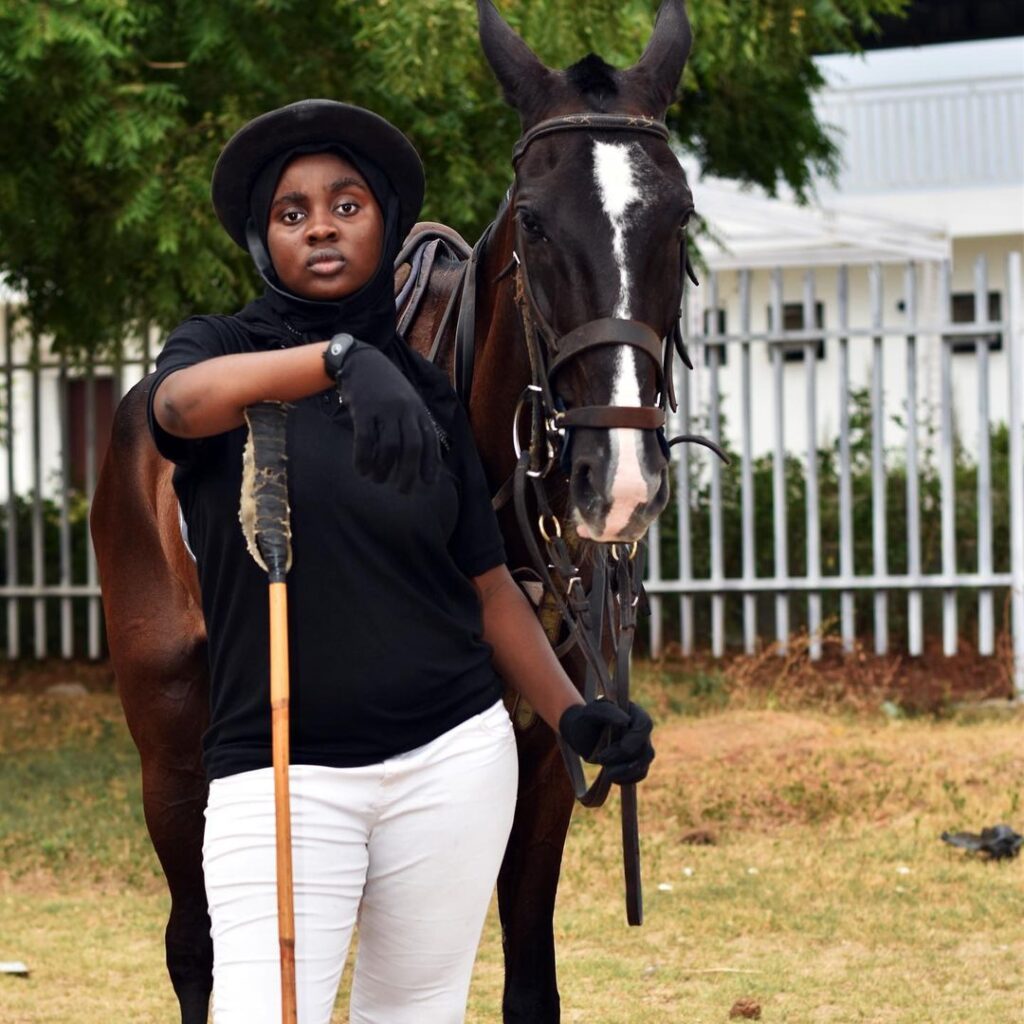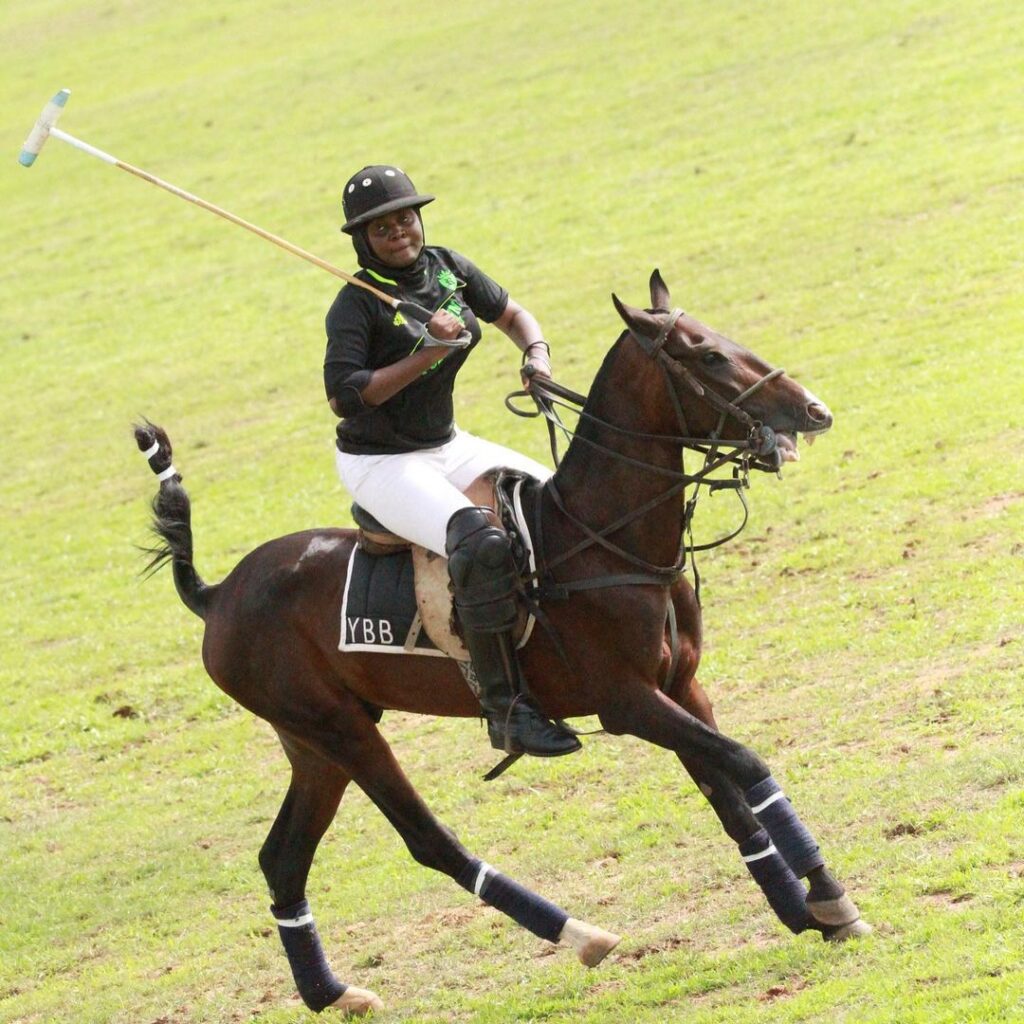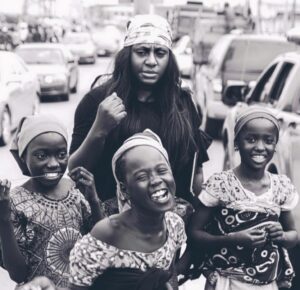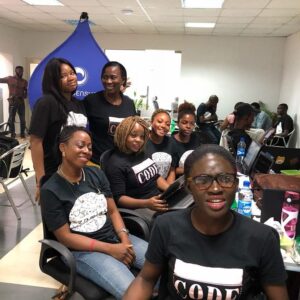As the new home of Folio Nigeria, a subsidiary of Folio Media, Open Country Mag is republishing culture stories that first appeared on the site under its CNN affiliation. This story was first published in 2020.
Between Aisha Ahmad and horses, it was love at first sight. At the Kaduna Polo Club, where she had gone with friends to watch a tournament for the first time, she was fascinated by the animals. She knew immediately, as she watched the horse-riders gallop in their helmets and boots, chasing the ball around, that she wanted to work with the horses, to be a polo player.
After the match, she made quiet enquiries on who to talk to, how to sign up, where to begin training. She did not disclose her new-found interest to anyone in her family. Through a friend, she met a man named Hussaini Ahmed, the coach for beginners in Kaduna. He took her to his stable and, for the first time, she saw an Argentine horse. “It was so big,” she says. “Instantly, I fell in love.”
She told Hussaini Ahmed that she wanted to be a polo player and he asked her only one question: “Zaki iya?” Can you do it?
“Zan iya,” she replied. I can.
It was 2016. She was a few months away from turning 16. He asked her to come back the next day. She did, and trained for a long time with a calm horse named Prince, Hussaini Ahmed’s personal horse.
But overtime, she grew bored of the horse. She wanted a horse that would challenge her. “I wanted something that would make me struggle on the saddle,” she tells me on the phone. And so she switched to a bigger horse. She trained every day in the morning and at night, until one day, Hussaini Ahmed gave her her first mallet.
It wasn’t until she played her first tournament that she became aware that she was the only woman in the club. “That was when the commentator announced it,” she says. “It never occurred to me that I was the only one. All I wanted to do was just play, ride horses, be happy.”
But she was not only the only woman playing in her club, she was the only woman playing polo in northern Nigeria, and one of the very few in Nigeria. The only other notable name in Nigeria, based on my finding, was Uneku Atawodi, who has been described as the first female polo player in Africa, as well as the first Black woman to play international polo professionally in Africa, at age 21. Her breakthrough came more than a century after the first recorded polo match in the continent, in 1874, when the Cape Mounted Rifles faced the 75th Infantry of the Line Regiment in South Africa.
The polo sport first came to Nigeria in the year of amalgamation, 1914, with a match held in Lagos by British naval officers. (It reached East Africa in 1917, with a match at Nairobi.) But it was not until Muhammed Dikko, the then emir of Katsina, saw the sport at London’s Hurlingam Club in the 1920s that he began to develop it in the north of the country. Him and his four sons made up a polo team and created awareness around Katsina, for the elites. His team gained dominance in the 1930s. The sport then spread to other northern cities like Zaria, Kaduna, and Kano.
Yet globally, polo, referred to as “the sport of kings,” had always had little room for women, so little that Sue Sally Hale, the most famous woman polo player had to disguise as a man for 20 years during her career in the 1950s. In 2017, Shariah Harris became the first Black woman to play in the US Open Women’s Polo Championship. Other notable female polo players include Monica Saxena from India, where there are less than 10 women in the sport, and Maitha bint Mohammed bin Rashid Al Maktoum from Dubai.
And so, for Aisha Ahmad, there were few options to look up to.

Now aged 20, Aisha Ahmad has played in nine tournaments. She won the Dantata and Sawoe Cup at the Kano International Tournament in 2018, and the Governor’s Cups at the Port Harcourt International Tournament and at the Kano International Tournament, both in 2019. At the 2020 Northern Pandora Awards, she was named Sports Woman of the Year. In March, Forbes named her among “30 Inspirational Women” for Women’s History Month.
Usually, Ahmad trains either at a polo club or a private farm. She readies her boots, her white trousers, her helmet, her mallet, her hand gloves. Then she gets to the club. When there are new horses, she does not hop on them immediately. She takes time to know them first. What do they like to do? What do they not do?
“A normal polo chukka takes about seven minutes,” she explains. “And a normal polo match has four chukkas. After every chukka, we are supposed to switch horses with one another, drink water, and then get on the next chukka.”
Despite training every day, morning and evening, ahead of her first tournament, she still did not feel ready when it came on December 17, 2017, the very day she turned 16. She scored her first official goal and her team won. Her family and friends were there to cheer her on. She recalls it as the happiest moment of her life.
That first tournament remains her favourite and proudest polo moment, particularly because, when she first started playing, she had hidden it from her parents, as she did not know how they would take it. Eventually, she confided in her mother.
“Of course, she wasn’t supportive about it at first,” Aisha laughed. “She’s an ‘African mother,’ so I wasn’t really expecting anything else.”
Her mother’s worry: it sounded unsafe to play a game that no other woman from the north was playing. A game that involved racing at extremely high speed on the back of a horse, chasing a ball, in a pitch with several other people doing the same thing.
“But I explained it to her and did my best to convince her that I would be fine,” Aisha says, admitting that it takes a lot of courage and strength. “I let her know that all I needed was her prayers and support. And because she knows how far I can go when I really, really want something, she eventually gave me her support.”
Both of her parents — her father only got to know when he saw her on TV — are now in full support of her career.
Meanwhile, she looks forward to playing on the pitch someday with another woman. “The future is female,” she says. ♦
If you love what you just read, please consider making a PayPal donation to enable us to publish more like it.
More Stories from Folio Nigeria x OCM
— How Taaooma Became a Social Media Phenomenon
— Nigeria’s New Wave of Experimental Metal Sculptors
— The Women Weavers of Akwete
— Against Sexism, Female Photographers Push Back with Skill
— A 17-Year-Old’s Hyper-realistic Portraits in Charcoal
— Intissar Bashir-Kurfi Is Collecting Nylon to Save the Environment





